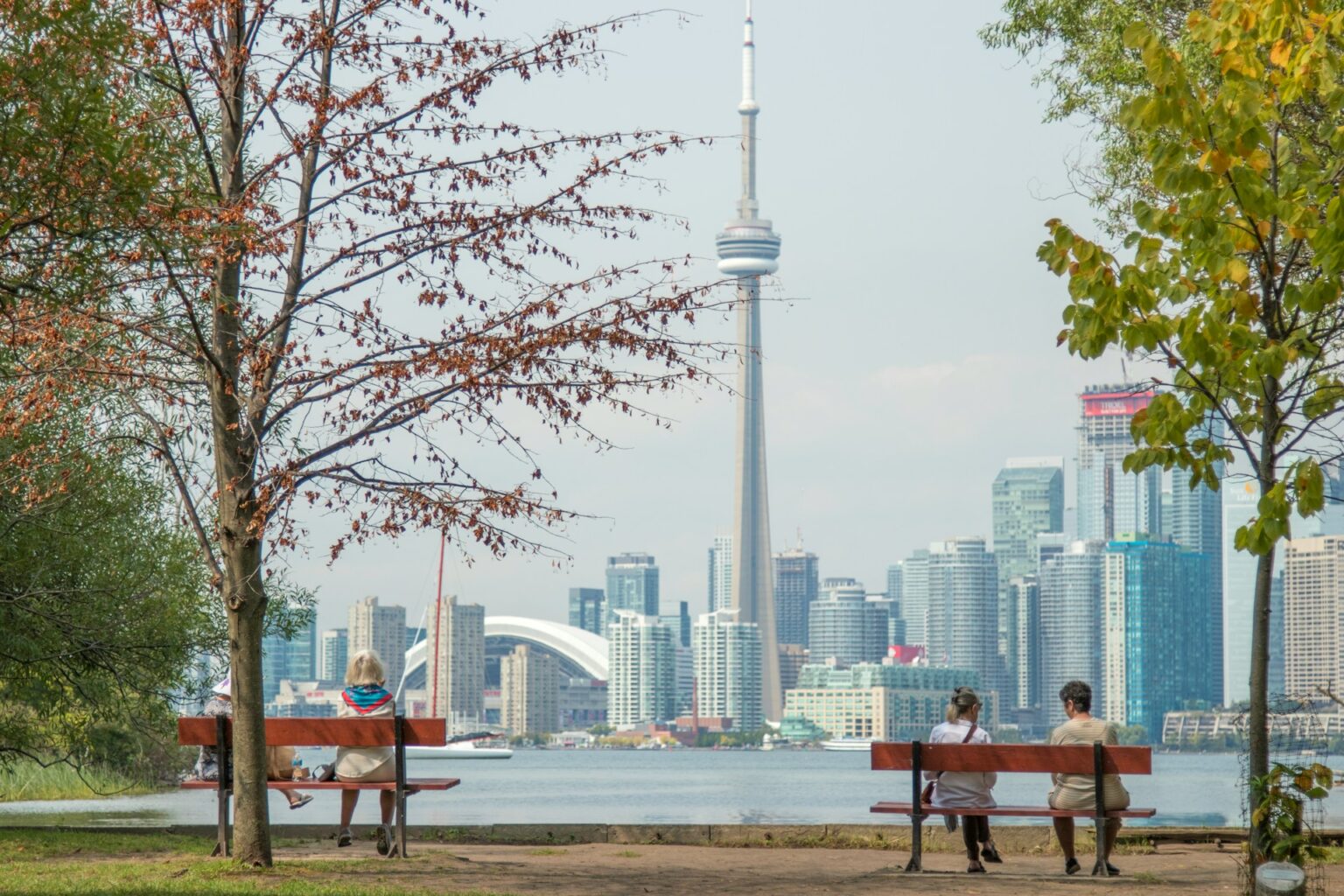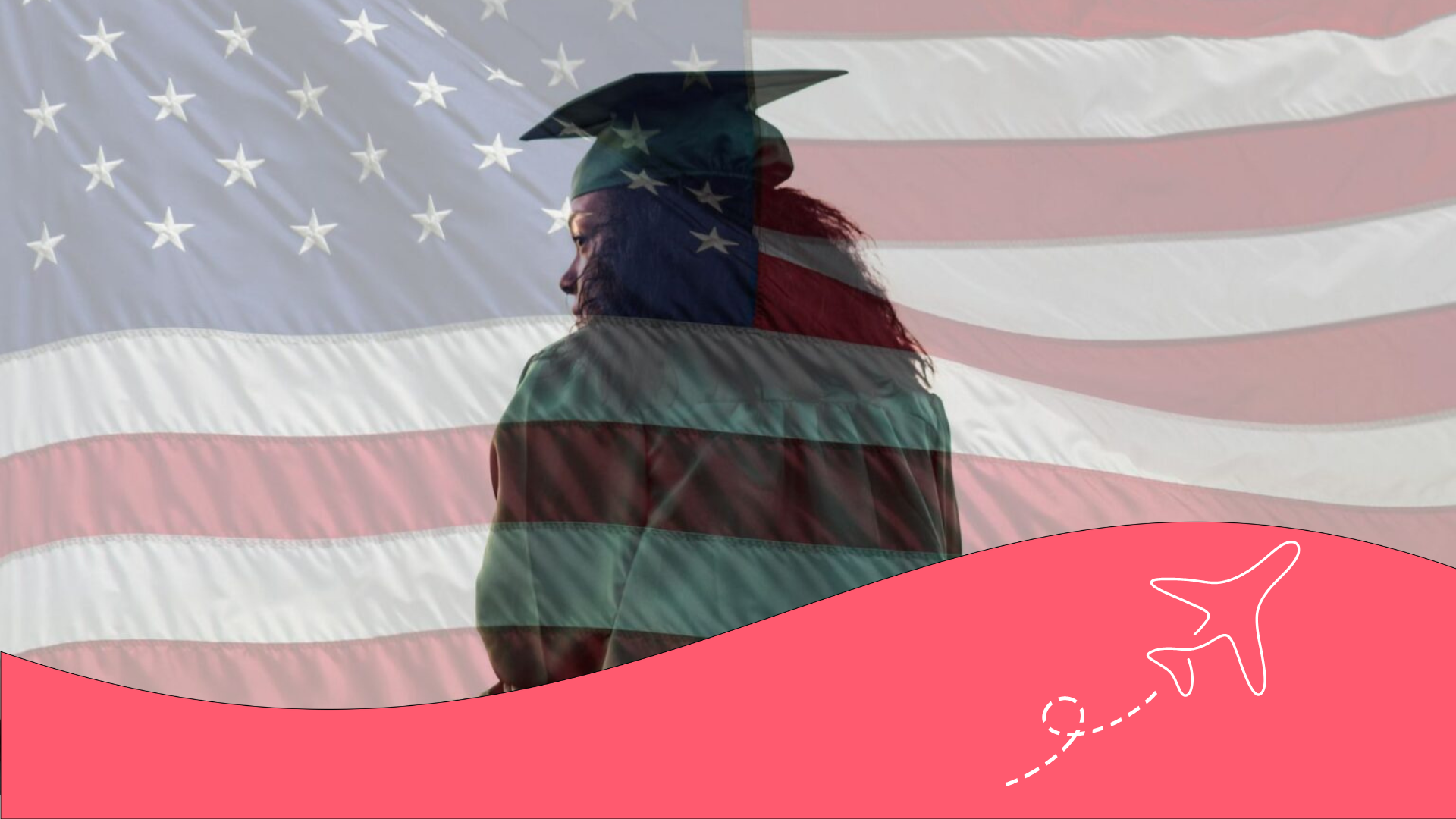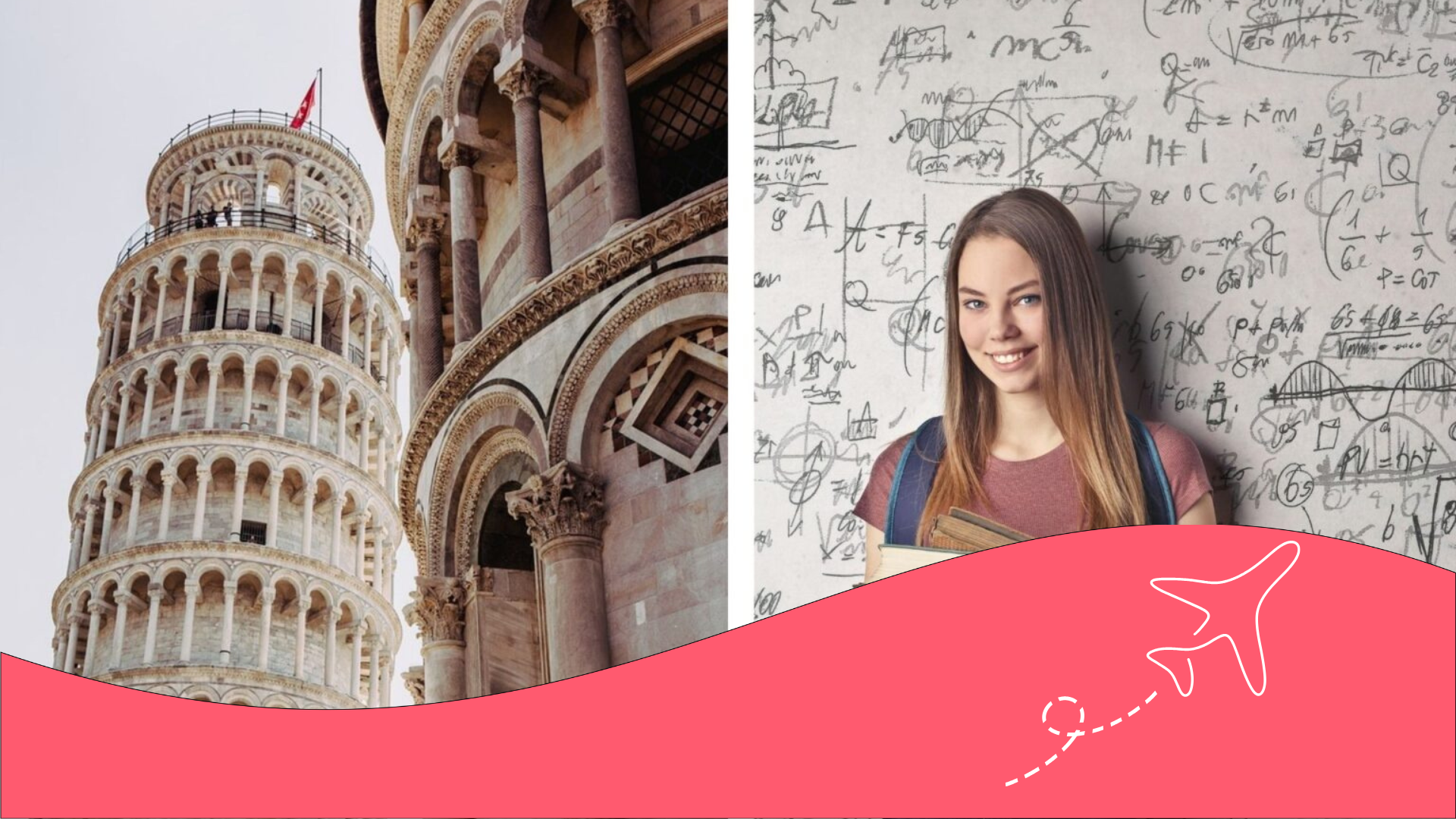How to study in Norway as an international student?
In this guide to studying abroad in Norway you’ll find out how to access one of the most prestigious educations in the world.
Are you looking to broaden your professional horizons? Would you like to study in a country known for its high quality of life and education? hen, you should definitely consider Norway as one of your top choices. You’ll be amazed by everything this Nordic country has to offer. In fact, more students from around the world are choosing Norway for its prestigious universities and free public education. If you’re one of them and thinking about moving abroad, this practical guide on how to study in Norway as a foreigner will be extremely helpful.
Before starting your studies in Norway, it’s essential to understand how their education system works. You also need to know the requirements and steps to get accepted into a university. Don’t worry, because we’ll walk you through everything you need to know. From funding options to the student visa process, we’ve got it all covered. Keep reading and find out how to turn your academic dream into reality in the land of the fjords.
How does Norway’s education system work?
Understanding Norway’s education system is the first step you need to take. It’s not enough to know that it’s highly rated; you should also grasp its structure, the study options available, and the general approach. To help you get started, here are some key facts that explain why Norway is known for its world-class education.
- Education in Norway is free and accessible to everyone. The country values learning, which is why schooling is free and compulsory up to the age of 16. Each municipality ensures every child has a place at school, resulting in a very high enrolment rate.
- The system is flexible and modern, encouraging both academic and practical skill development.
- It’s divided into levels: Primary school (barneskole) from age six to 13, lower secondary (ungdomsskole) from 13 to 16, and upper secondary (videregående skole) from 16 to 19.
- Education up to age 16 is compulsory. Upper secondary school is optional but required for university admission.
- Higher education takes place at public universities and specialised private colleges. Programmes include Bachelor’s degrees, which last three years; Master’s degrees, which take one to two years; and PhDs, lasting between three to five years and focusing on advanced research.
- Public universities in Norway are free for everyone, including international students, regardless of nationality. This applies to undergraduate, Master’s, and PhD programmes. The only regular cost is a monthly administrative fee, around $33–$65, which covers services like libraries, on-campus transport, and student activities.
- There are also private institutions that charge tuition and monthly fees.
- Did you know that Norway places great value on teachers? It invests in their training and ensures they receive fair pay for their vital role.
- Another interesting point is that Norwegian universities follow the Bologna model. This makes it easier to move between European countries since degrees are aligned and recognised across borders.
What languages are university courses taught in?
Norwegian universities offer programmes in both Norwegian and English, and English is widely spoken across the country. While most undergraduate courses are in Norwegian, there are over 200 Master’s programmes available in English. This opens the door for students from all over the world.
How to Study in Norway as a Foreign Student? Requirements
If you’re planning to study in Norway as an international student, you’ll need to meet certain requirements and submit specific documents to be accepted into a university or private institution. These requirements are quite similar to those in other countries. Do you want to know which ones are they?
- A valid passport with at least six months of validity from your date of entry into Norway.
- An official letter of acceptance from a university, as this document confirms your admission and is absolutely necessary.
- You’ll need a student visa: If you’re not from the European Union or the European Free Trade Association (which includes Norway, Switzerland, Iceland, and Liechtenstein).
- You must show proof of financial means, with at least 138,000 NOK per year, which is around $12,000.
- An international health insurance policy is mandatory for all students coming from outside the EU.
- If there’s a tuition fee or administrative charge, you must provide proof of payment.
- You’ll also need certified and translated academic records. This applies to high school diplomas or university degrees, depending on the level of study.
- Language proficiency is another key requirement. For English-taught programmes, you must present a TOEFL or IELTS certificate. If your course is in Norwegian, you’ll need to pass a Norwegian language test.
How to Study in Norway as a Foreign Student? Step-by-step guide to studying in Norway
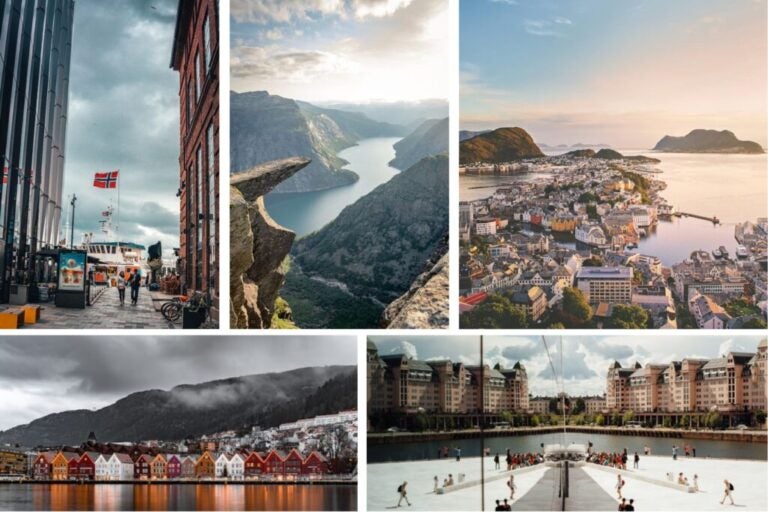
If you’ve decided that Norway is the perfect destination for your academic journey, you’ll need to follow a clear and organised process. It’s not enough to simply pick a university or course that catches your eye. Each step is vital to ensure a smooth and successful experience as a student. That’s why we’ll guide you through the full admission process. You’ll also learn how to secure funding, apply for your visa, and get practical tips for relocating. By following these steps, you’ll be able to study in Norway without setbacks and make the most of everything this country has to offer.
1. Choose a university and study programme
Before starting any paperwork, you must first decide which university suits you best and which academic programme aligns with your goals. Based on this, you can choose between full university degrees or short courses, each with its own features, costs, and admission requirements.
When selecting where to study in Norway, consider these key factors:
- Check the language of instruction, since many programmes are in Norwegian, although there’s a wide range of Master’s degrees in English.
- Look into tuition fees if you’re considering a private institution.
- Pay attention to the university’s reputation and its strengths in specific fields like engineering, business, or environmental sciences, which are highly regarded in Norway.
- The location of the university also matters. Oslo, Bergen, and Trondheim are the top student cities, each with its own lifestyle, climate, and living costs. Oslo is the capital and the most connected city, offering plenty of academic and job opportunities. Bergen lies on the west coast and is the gateway to Norway’s famous fjords. It has two top universities and a very rainy climate. Trondheim, located in central Norway, is known for its vibrant student life.
Top universities in Norway
- The University of Oslo (UiO) is the most prestigious, offering strong programmes in humanities, law, and sciences.
The Norwegian University of Science and Technology (NTNU) is in Trondheim and stands out for its focus on engineering and technology. - The University of Bergen (UiB), based in Bergen, specialises in social sciences, medicine, and marine studies.
- BI Norwegian Business School in Oslo is ideal for economics and business courses.
- UiT The Arctic University of Norway is located in Tromsø, the Arctic city of Norway. It’s ideal for studies on natural sciences, climate change, and Arctic biology.
- The University of Stavanger (UiS), in the modern city of Stavanger near the famous Preikestolen. Its programmes offer degrees in energy, tourism, and business.
Differences between university studies and short courses in Norway
| Feature | University Studies | Short courses: |
| Duration | 3–5 years (undergraduate), 1–2 years (master’s) | From a few weeks to 1 year |
| Cost | These are typically free at public universities | $550 to $5,500 |
| Language: | Norwegian and English | More commonly available in English |
| Admission requirements | Prior academic qualifications | In some cases, only need a basic application. |
| Career Opportunities | More job prospects and wider recognition | More specialised, depends on the field |
2- Explore funding options for studying in Norway
Although most public universities in Norway don’t charge tuition fees, you’ll still need to cover your living expenses. These include accommodation, food, study materials, and daily essentials. It’s worth noting that Norway has one of the highest living costs in Europe.
So, how can you save money while studying there? While public universities don’t usually offer direct funding, there are several scholarships and support programmes available for international students. For instance, the Norwegian government provides scholarships like the Quota Scheme and NORPART for students from developing countries and selected regions. If you’re from the EU, you may also benefit from Erasmus+ and exchange programmes.
If you want more in-depth details, check out our article on the top 5 scholarships to study in Norway. Meanwhile, here’s a quick overview of some key options. Before applying, make sure to visit the official website of each university to check their specific requirements and benefits.
- The Norwegian University of Science and Technology (NTNU) offers scholarships for international students pursuing English-taught Master’s programmes in subjects like Chemistry, Biology, Health, Computer Science, Mathematics, and Physics. These scholarships include a monthly stipend, access to campus resources, and other perks.
- The Erasmus+ programme, sponsored by the European Union, isn’t exclusive to Norway but allows students to spend a semester or a year at Norwegian universities through exchange agreements. It includes a monthly allowance and basic health coverage, among other benefits.
- The University of Oslo (UiO) offers scholarships for international students applying to English-language Master’s programmes. These often include monthly support, study materials, and in some cases, extra funds for public transport and academic resources.
- The BI Presidential Scholarship is offered by BI Norwegian Business School. It’s aimed at outstanding international students who wish to pursue a Master’s degree in Business or Management.
3. Apply for a Study Programme in Norway
You’ve already chosen the Norwegian university you’d like to attend and picked your course. Now comes the most crucial part of the process: Applying to your chosen study programme. Pay close attention during this stage to make sure you send all the correct documents. That way, you’ll avoid delays in the approval process.
Each university and programme may have its own specific admission requirements. However, in most cases, students must submit an online application through the university’s official website. After that, you’ll need to upload all required documents before the deadline and then wait for the admission confirmation. Once accepted, you can move on to the next step: Applying for your student visa.
Applications for undergraduate programmes usually open between December and April. For postgraduate studies, it varies by university, but most deadlines fall between October and March.
4. Apply a for Student Visa to Study in Norway
You’re one step closer to achieving your dream of studying in Norway. But there’s still one important step left: Getting your student visa. This requirement only applies to students from outside the European Economic Area (EEA) or the European Union (EU), and only for programmes that last longer than three months. If you’re attending a short course, you can apply for a tourist visa (Schengen Visa). However, keep in mind that this type of visa doesn’t allow you to work or extend your stay.
Students from EEA or EU countries don’t need a visa but must register with local authorities if staying for over three months.
A student visa can take two to three months to be approved, so apply well in advance to avoid issues. Where to apply? You’ll need to submit your visa application at the Norwegian embassy or consulate in your country of residence. Make sure you have the following documents ready:
- Letter of acceptance from the institution
- Valid passport
- A valid letter of acceptance from a Norwegian educational institution
- Health insurance
- Proof of accommodation in Norway
5. Moving to Norway
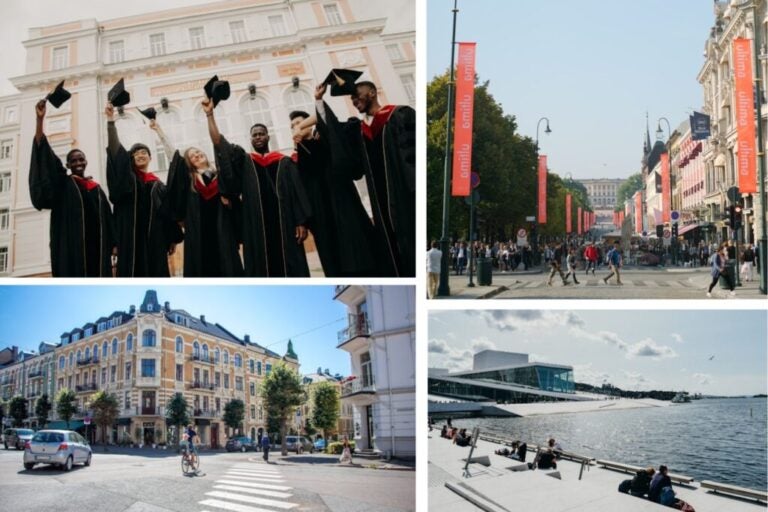
With your student visa in hand, it’s finally time to move to Norway. But don’t let nerves take over. Relocating to a new country comes with many changes, even if you’re staying for a short time. You’ll need to adapt to local customs, adjust your daily schedule, and get used to the weather—which can be quite extreme in Norway. Winters are long, dark, and cold. Especially if you’re coming from a warmer climate, your first winter in Norway will definitely be an adjustment.
You’ll also need to sort out your accommodation, which is often one of the biggest concerns for international students. Living in major cities like Oslo or Bergen is usually more expensive, especially when it comes to housing. However, places like Stavanger or Trondheim tend to offer more affordable options, helping you stretch your budget further.
That’s why your choice of university should go hand in hand with the city where you plan to live. It will impact both your lifestyle and your finances. Don’t feel discouraged—there are alternatives such as student residences. These tend to be cheaper than private rentals. Still, cities like Oslo and Bergen have high demand, so it’s smart to start your housing search a few months before your move.
Where to search for housing in Norway Some of the most popular platforms include Finn.no, Hybel.no, and BoligPortal.no.
Once you arrive, you must register with the nearest Immigration Office (part of the Norwegian police) within your first seven days in the country. It’s also a good idea to open a Norwegian bank account. This will help you manage payments, receive your scholarship funds, or get paid if you take on part-time work.
5. Connectivity in Norway
From the moment you arrive in Norway, you’ll need a reliable internet connection. Whether you’re checking emails from your university, logging into virtual campuses, staying in touch with family, or relaxing with your favourite streaming service, staying connected is essential. Having fast, stable internet will make your transition to life in Norway much smoother.
Instead of relying on public Wi-Fi or looking for a local SIM card, you can start with a Holafly Connect plan. Choose from 10 GB, 25 GB, or unlimited data options, all powered by eSIM technology. This service allows you to get connected as soon as you land in Norway. Plus, Holafly Connect works in over 175 countries. So, if you plan a quick trip to a neighbouring country, your connection stays with you.
All plans are monthly and renew automatically, providing a stable 4G or 5G connection at all times. With Holafly Connect, you can begin your Norwegian adventure without worrying about losing signal or hunting for Wi-Fi. Just activate your plan and start exploring with the best coverage and speed.
Important: If you are a frequent traveler and want to stay connected without worrying about expensive roaming or looking for a new SIM at every destination, Holafly’s subscription plans are for you. With a single eSIM, enjoy internet in more than 170 countries for a fixed price and no surprises on your bill. Travel without limits and connect easily and securely! 🚀🌍

When and How to Validate Your Qualifications in Norway
Are you planning to study in Norway and already hold a degree from another country? If so, you may need to get it recognised. This step is important if you intend to pursue undergraduate or postgraduate studies, or if you want to work in a regulated profession such as medicine, teaching, or engineering.
The process is straightforward, but it takes time. First, check whether your degree needs validation. Each university or institution sets its own criteria, so the requirements depend on where you plan to study or work. Next, begin collecting the necessary documents. You’ll need a copy of your diploma, an official translation, and certified transcripts. Once you’ve gathered everything, submit the documents and pay the application fee. Processing time usually ranges from six weeks to three months. Fees cost between 1,500 and 5,000 NOK, which is about $130 to $435.
In Norway, degree recognition is managed by NOKUT (Norwegian Agency for Quality Assurance in Education). However, other agencies may also be involved depending on your field of study.
Cost of living in Norway
Now let’s talk about another key factor to consider when planning your studies in Norway: the cost of living. You already know that public universities offer high-quality education for free. But what about the price of accommodation? And food? Is it expensive to travel between cities, or even within the same city? We’ll help answer these questions.
First, it’s important to understand that the cost of living in Norway is high compared to other European countries. However, with good planning, you can still manage your budget and save money. Smart financial planning will go a long way. Here are some average costs to help you build a realistic budget:
- University administrative fee (monthly): Around $30–$65
- Private universities: Around $7,000–$18,000
- Short courses: $440–$4,000 depending on the programme and institution.
- Student housing: Around $260–$520 per month
- Shared apartments Around $390–$695 per month Around $390–$695 per month
- Private apartments: Around $650–$1,305 per month Around $650–$1,305 per month
- Monthly public transport pass: $44–$70, depending on the city.
- Single bus or tram ticket: $3.50–$5.30
- Second-hand bicycle: From $175
- Meals in a budget restaurant: $13–$22
- University cafeteria meal: $7–$10
- Monthly groceries $260–$435
- Health insurance $35–$60 per month for basic plans, or $340–$680 per year for premium coverage
These are just the essential expenses. We haven’t included leisure or entertainment, which are also part of student life. If these numbers seem overwhelming, don’t worry—there are ways to save.
You could stay in student housing, share a flat, or buy monthly or semester-long transport passes. Many students also get discounts on public transport, gym memberships, and even cinema tickets. Cooking at home and doing grocery shopping with classmates will also help you cut costs and manage your budget better.
Extra tip: Enjoy Norway’s natural beauty Many of its natural attractions are completely free and offer the perfect way to recharge after a long day of studying.
How to Study in Norway as a Foreign Student? Online Courses
Would you love to study at a Norwegian university but can’t move abroad? Online education could be your best option. Many universities in Norway offer virtual programmes, especially for postgraduate and continuing education. You’ll likely find a course that matches your goals.
Institutions like NTNU, BI Norwegian Business School, and the University of Oslo provide online programmes in fields like technology, business, and social sciences. You can also explore NDLA, a free platform with content in various subject areas.
Do online studies require the same documents as in-person programmes? Generally, yes. You’ll need a previous degree, language certification, motivation letter, and proof of tuition payment. However, one major difference is that you don’t need a visa or proof of financial means to study online.
Online learning also offers extra advantages: Lower costs, flexible schedules, and the chance to keep your current routine. Still, there are drawbacks. There’s less interaction with teachers and classmates, and not all programmes have official recognition.
How to Study in Norway a Foreign Student? Frequently Asked Questions
Yes, international students on a study visa can work up to 20 hours per week during term time and full-time during holidays. However, if you have a scholarship, check the specific conditions, as some may have restrictions on work activities.
It isn’t compulsory for most international scholarship programmes, as many universities in Norway offer programmes in English. However, learning the language of the country can be an advantage to better integrate into society, expand your job opportunities and fully enjoy the cultural experience.
Getting a visa isn’t hard, but you must prepare well. You’ll need documents like your admission letter, proof of funds, and health insurance. Although it’s not difficult, submit everything early and correctly. That way, it helps to improve your chances of approval on the first try.
International Business is the top choice for many foreign students. It’s ideal for careers in global companies, international trade, or cross-border management.
Not always. Students from EU countries can use their European Health Insurance Card for basic care. If staying over 12 months, they can register in Norway’s public healthcare system. Students from outside the EU must have private health insurance throughout their stay.





 Language
Language 


















 No results found
No results found




